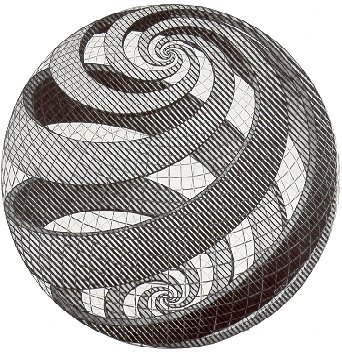For an inclusive knowledge society
For a true digital citizenship
For innovation and development
“We should start considering ourselves citizens of the world and taking a cosmopolitan approach.” (E. Zuckerman 2014)
“In the knowledge economy, value is concentrated in the immaterial and the price of objects rises in relation to the quantity of research, information, images, intelligent design, environmentally compatible material, and socially recognizable meaning that they contain. In such a context, the space for innovation is enormous. ”(L. De Biase, 2013)
“The cyber-utopians haven’t managed to foresee the measures that authoritarian governments have adopted in relation to the Internet. Furthermore they have failed to grasp just how useful it has proved for propaganda, how sophisticated modern systems of online censorship have become, and the skill with which dictators have learned to use the web for surveillance purposes… As to concrete action promoting democracy, cyber-utopian ideas often lead to an equally mistaken approach, one that we can call Internet-centrism (technological determinism, editor’s note)…the Internet-centrists love to respond to every question regarding democratic change by reformulating it so that it takes the Internet as its starting point rather than the context in which the change should take place.”(E. Morozov, 2011)
“In fact, the virgin terrain of the current communicative praxis seems to be mainly characterized by the extraordinary opportunity it provides for the democratization of knowledge and those cultural processes capable of definitively breaking up the old industrial model as well as consolidated assets, hierarchies, control logics and closure to change. What’s in play, therefore, is a redefinition of the structure of social power relationships and all its consequent implications […] The development of the world-system is strictly linked to the affirmation of a new civil religion based on (widespread) knowledge and values that have not been imposed on the actors involved but acquired in an intersubjective way.”(P. Dominici, 2003-2011)
The complex architectures (2005) that support the Web society confirm, and, by removing all doubt, further reinforce the character of “common good” associated with the resource of “knowledge”. Knowledge, gained through intersubjective acquisition processes, is the only strategic resource capable of fuelling, even from below, the nerves and tissues that innervate the interconnected economy, and, in so doing, of creating the basic conditions for the realization and evolution of a cognitive ecosystem (2003) based on processes that are open, dynamic and more democratic than ever before. We say this despite the fact that we have expressed criticism on several occasions by proposing to define the public sphere that’s no longer politically autonomous and, more importantly, that’s not critically educated, as a “weak link”(1996 and 2002) – between the power system and media ecosystem. However, we can’t ignore the ever-increasing number of projects founded on a core of knowledge sharing and on a new economic model which is, in turn, based on cooperation, a participatory and mutualistic culture, and an ethic of gift-giving (in the long term). An example of this is the ambitious – but far from utopian – project to create an open-source global network aimed at the development and production of knowledge, as well as the control of information (once again, the debate and decisions regarding Net neutrality become crucial).
A knowledge ecosystem, structured in a reticular manner, is destined to significantly facilitate the processes that are reducing complexity in a phase of the passage to hypermodernity that’s becoming increasingly characterized by rising indecisiveness and systemic disorder. We won’t add to these extremely problematic dynamics – here’s not the right place to do so – the analysis that needs to be done on the historic context in which we find ourselves having to act, which is to say the so-called knowledge society. Within this increasingly global and interconnected context, the great majority of the lived experiences with which we have to interact continuously show themselves to be experiences mediated through the information system and, more generally speaking, through the system of the means of communication. Such dynamics have effects that are mainly cognitive in nature and which affect the definitions of thematic hierarchies that public opinion (democracy) prioritizes. In other words, we have to acknowledge the absolute strategic relevance that communication – here taken to mean a social process of knowledge/power sharing that equalizes the positions of the actors participating in the communicative act – and communicative systems have assumed in the processes of socialization between individuals who are increasingly autonomous in their choices, as well as in the mechanisms that give structure and definition to identity and belonging. This creative evolution (the title of an important work by H. Bergson), which is evidently linked to technological innovation and the advent of the so-called Network society, has determined a kind of expansion of the praxis and, more specifically, of the public sphere. In so doing it has helped re-focus attention on the question of ethics – and of the competencies, not just technical competencies, necessary to guarantee ”real” digital inclusion – albeit within an increasingly complex problematic context. It’s not by chance that the concepts of risk (knowledge, trust, freedom, nowadays one even talks of the risk of digital liberty), uncertainty, and vulnerability characterize the new capitalistic knowledge economy and connote the dynamics of modern social systems – crossed through by increasingly significant flows of migrants. The globalization process radicalizes conflict – by introducing new forms and modalities for the possession of and access to (immaterial) resources – precisely because it hits the sphere of shared values, meanings, and symbols, compelling us to a (fundamental) comparison with the Other. This is also a problem of knowledge.
The risk, as we’ve reiterated several times, is that “communication” is confused with “connection”. The Internet society has led to an exponential increase in the potential to ”connect” but opportunities to access, share and, above all, develop knowledge and information are far from being a reality for the majority of social actors. At the same time, the knowledge society, founded on sharing and the openness of systems, is still a long way off (as much research and study has documented) also because tendencies that have always characterized groups, communities, and social systems are reinforced on the Internet. These tendencies manifest themselves as “closure”, which works towards a simultaneous increase in internal cohesion, and the control of mechanisms and dynamics of knowledge and power (P. Dominici, 2005). Ethan Zuckerman, one of the most authoritative voices on the subject, returns to these fundamentally important themes in his latest work (2014), speaking of cosmopolitanism alongside the tendency to self-segregation (via youtube -> digital self-segregation… the question returns of the end of the social bond and the “society of individuals”-> see previous posts), as well as the central role of the so-called “bridge-figures” (bloggers) who translate and share information by linking contexts. We can see that once again the figure of the opinion leader (two-step flow of communication hypothesis) is taking centre stage in social research. Communication research, even whilst concentrating on the mass media, has produced significant results on this figure since as early as the mid-20th century. The cognitive potentialities are growing as are those of misinformed information … a subject to which we’ll return on a later date!
P.S. We’d call your attention to the content of the links, which aren’t so visible. Thanks for reading and until the next text!
Share the content but, please, always cite the source. Thanks for your time!



